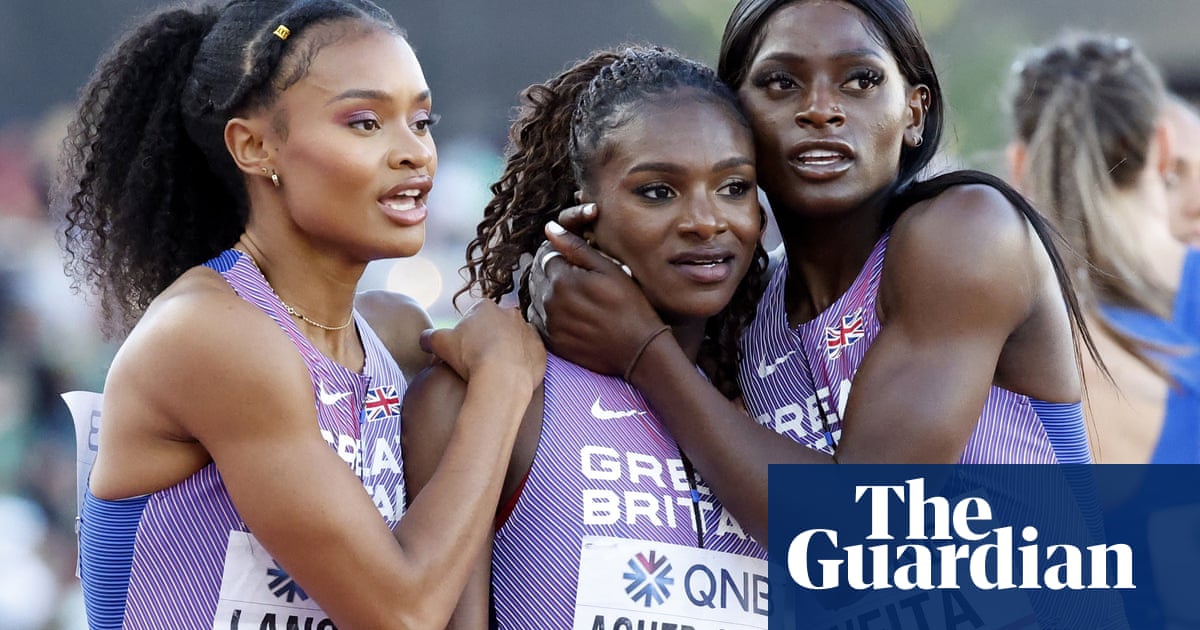Dina Asher-Smith’s relay teammates have praised her for shattering the “massive taboo” around periods in sport – and urged the government and sports bodies to invest far more in research to tackle the issue.
Speaking after Britain’s women’s 4x100m women qualified fastest for Saturday’s final, Imani-Lara Lansiquot bravely revealed that she was currently on her on period in Munich – to the surprise of her fellow teammates.
The sprinter then questioned why more money was not being devoted to research to help combat the effects of the menstrual cycle.
“One hundred per cent there should be more funding,” said Lansiquot. “I still think it’s quite shocking that it’s taboo. I’m going through it right now. I’m sure all of us have gone through it at some point but we’ve still not even said anything to each other because it feels like a massive taboo that isn’t discussed.”
Lansiquot also pointed out it was not as easy as taking the pill. “The side-effects of all the medication you can take are still really unknown,” she said. “I would love in five or 10 years’ time for this not to be a hush-hush conversation and for it to be something you can talk about and conquer instead of having to shy away from.”
Ashleigh Nelson, also a member of the relay team who has been part of the GB squad since the Beijing Olympics, was another to speak out. “If this was a man’s issue, we would be dealing with it,” she said.
“It’s very difficult that once a month you have to plan your training, your diet, your life around having a period. There are things you can take to postpone your period but they also have side-effects so you’re in a Catch-22. You can’t win. But it’s part of being a woman and a lot of us handle it very well.”
The women are strong favourites on Saturday, with Asha Philip praising the team’s unity. “This summer, we’ve seen each other more than we see anyone else and we’ve created such a fantastic bond together,” she said. “No matter what team you put out, no matter who does what leg, we’re going to excel.”
The men’s 4x100m team believe they will also win gold despite the absence of Reece Prescod, who has decided to go home. And Harry Aikines-Aryeetey, the veteran of the squad, praised how youngsters such as Jeremiah Azu, Tommy Ramdhan and Jona Efoloko have been seamlessly integrated.
Harry Aikines-Aryeetey (second from left) and the men’s 4x100m team in Munich. Photograph: Matthias Hangst/Getty Images
“It says a lot about our philosophy,” he said. “We’ve worked hard on how we go about our business. If you look at some of the top football clubs – Ajax and the old Manchester United – they talk about the philosophy of bringing through youngsters and how if you’re good enough, you’re old enough.
“I was one of those in the early days. I’ve seen some different types of things. My first senior relay squad was 2006, medalling in 2009.
“The toxicity has left. We have a lot of progressive mindsets. We have a lot of kind souls in the group that all want to progress well.” When it was put to Aikines-Aryeetey that he was the team’s Sir Alex Ferguson figure in the squad, he laughed and pointed to his teammates. “Yeah, but you’ll have to ask them,” To which Efoloko replied: “Yeah, but he’s our player-manager too.”
Meanwhile, Britain’s Keely Hodgkinson, who has won Olympic, world and Commonwealth silver medals in the past year, won her heat to underline her favourite status for Saturday’s 800m final. Afterwards she made it clear she was determined to win gold.
“I’ve just been told I didn’t smile enough today, but I’m tired, that’s why,” Hodgkinson said. “I’m definitely on the home straight now. I’m tired but I do training reps tired so I’m going to be all right. I believe in my capabilities and what I can do.”
“Winning gold is a big thing,” added Hodgkinson, who will face the Britons Jemma Reekie and Alexandra Bell in the final. “I’d just like to be on top of the podium this year. I wrote down my aims and I was going into every champs wanting to win. Unfortunately that hasn’t happened but I’m still very happy with my season overall.”
